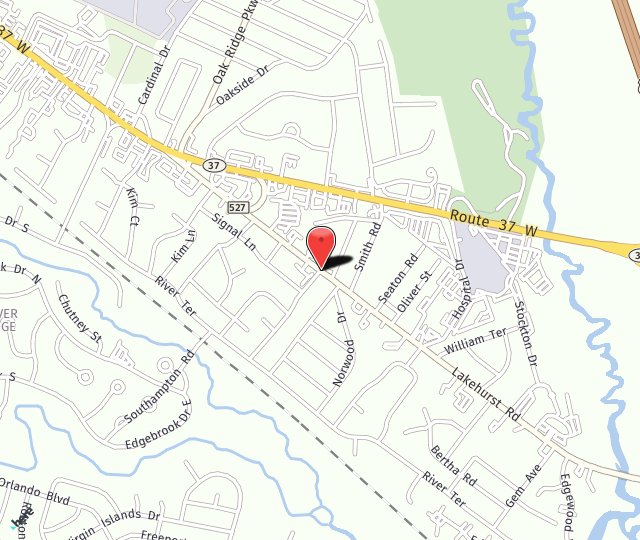What Are the Sinuses?
There are many sinuses in the body. Those that we typically relate to the word “sinus” are those that are located behind the nose and eyes. There are four sinus cavities in the face. These include the:
- Maxillary sinuses, which are located near the cheekbones.
- Frontal sinuses, with one on each side of the forehead just above the bridge of the nose.
- Ethmoid sinuses, which look like a honeycomb, are located between the eyes.
- Sphenoid sinuses, which sit behind the ethmoid sinuses.
The sinuses are lined with soft tissue. Their walls have a light mucus coating, which moistens the soft tissue and traps bacteria to prevent passage to the lungs. The location of the sinuses also affects voice resonance, or the sound of our speech. Sinus problems or malformation can make a person’s voice sound “nasally.”
It is necessary for the sinuses to freely and regularly drain mucus to maintain optimal function. If drainage becomes blocked, sinus problems occur.
What Are the Common Problems With the Sinuses?
The most common problems that occur in the sinuses include:
- Allergies
- Deviated septum
- Acute sinusitis, or a sinus infection
- Chronic sinusitis
What is Sinusitis?
Sinusitis is inflammation or infection within one of the four sinus cavities. This condition occurs when mucus builds up. Symptoms of sinusitis include:
- Congestion within the nasal passages caused by a blockage in the nose or sinuses.
- Nasal discharge. This may be thick and colored. In severe cases, the discharge may have a foul odor.
- A sensation of pressure or pain in the face in the area of the affected sinus.
- A diminished sense of smell.
- Cough.
- Bad breath.
- Fatigue.
- Fever.
When symptoms last 12 weeks or less, a doctor may diagnose acute sinusitis. Symptoms that last more than 12 weeks are considered chronic sinusitis.
What Treatments Are Used for Sinus Issues?
Treatment for sinus problems is developed after an accurate diagnosis of what is causing symptoms. In cases of sinusitis, treatment may only be prescribed when over-the-counter medications and home remedies fail to improve symptoms. This is because acute sinusitis often resolves without treatment.
Medical care for sinusitis should be sought when:
- Symptoms persist longer than 7 days.
- Symptoms include a fever higher than 101.5° Fahrenheit.
- Swelling can be seen around the eyes or visual disturbances such as blurry vision occur.
- Antibiotics do not improve symptoms.
Antibiotics may help treat acute sinusitis. Studies suggest that chronic sinusitis may be caused by a bacterial infection, which cannot be treated with antibiotics. A doctor will perform tests to determine whether chronic sinusitis is caused by bacteria or fungus. In such cases, relevant medication may be prescribed and corticosteroid nasal spray may be used to control swelling in the sinuses. In the case of allergic sinusitis, recurrence may be managed with allergy medications and by identifying and avoiding allergens.
Surgery for Sinus Problems
A deviated septum is a structural problem in the nasal passageway that can only be corrected with surgery. If chronic sinusitis persists or coincides with the development of nasal polyps, surgery may be recommended. A deviated septum is corrected with an outpatient procedure called septoplasty. Nasal polyps may be removed with functional endoscopic sinus surgery.
How Are Sinus Infections Diagnosed?
A thorough review of symptoms and an examination of the ears, nose, and throat may be sufficient for diagnosing a sinus infection. The nasal cavity is visually examined using a handheld light. This examination observes the presence of mucus and inflammation in the sinus. An ear, nose, and throat specialist may use an endoscope, a small, flexible tube with a light on the end, to perform a more in-depth examination.
What Can I Do to Help Prevent Sinus Infections?
Sinus infections may begin as a common cold. To prevent one is to reduce the risk of the other. Some of the ways to prevent upper respiratory infection include:
- Washing hands frequently to wash away germs and viruses.
- Refraining from touching the face to prevent the spread of germs from the hands to the face.
- Regularly disinfecting surfaces such as cell phones, computer keyboards and mouse, doorknobs, light switches, and countertops.
- Eating and sleeping well to promote a healthy immune system.
General sinus health can also be promoted by:
- Staying hydrated to keep mucus thin.
- Avoiding smoking and exposure to secondhand smoke.
- Avoiding dry environments. Using a humidifier when necessary.
- Performing sinus irrigation using a neti pot and a sterile saline solution.
- Using antihistamines only as directed and when necessary.
- Limiting the use of decongestants only to times of upper respiratory infection.
What Are the Risks of Leaving Sinus Issues Untreated?
The sinuses fulfill vital respiratory and sensory functions. Ongoing sinus problems could lead to:
- Diminished sense of smell
- Paranasal sinus mucocele, a cyst within the sinus cavity
- The spread of infection to the eye area
Serious complications of sinus infection, such as meningitis, are rare but can occur. If sinus problems do not improve within one week, it is necessary to consult with a doctor for proper diagnosis and treatment.
Schedule a Consultation
Wayne Foster MD, FACS, is a dedicated and highly trained specialist who has proudly provided service for the benefit of his patients, referring physicians and the community in Ocean and Monmouth counties for the past twenty years. Call (732) 914-2233 to schedule your visit with us.


